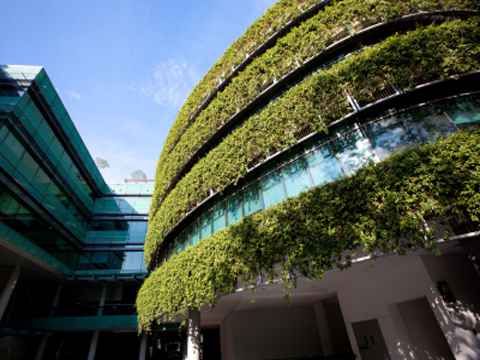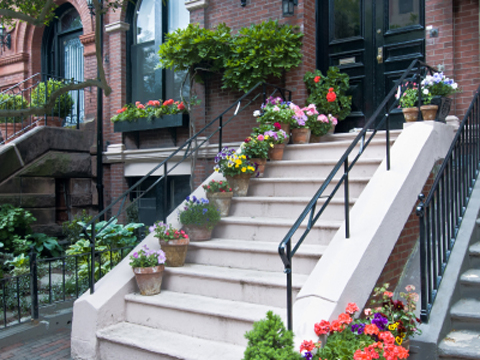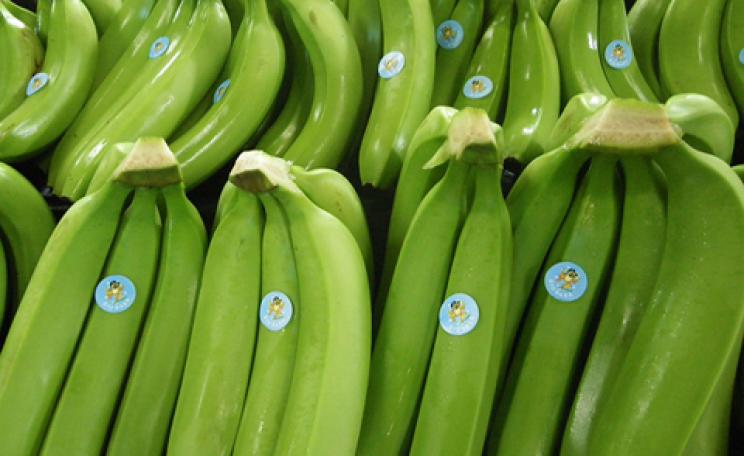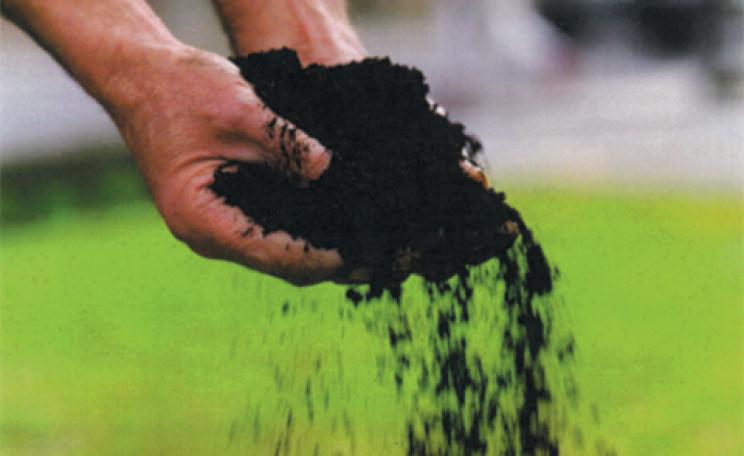This Sunday, mothers up and down Britain will be receiving floral bouquets from their grateful offspring. While some of these will be locally grown, many more will have their origins in Kenya or Latin America. Along with CO2 emissions, the majority of the blooms will have been grown using pesticides. So how can you make the traditional bunch of flowers part of Mother’s Day without harming the planet? ‘At this time of the year if you want to be absolutely perfect with your carbon footprint, pick from your own garden but that’s not going to happen because there is very little’ says Caroline Marshall-Foster, from the Flowers and Plants Association. ‘A rose or sunflower at this time of the year wouldn’t grow and this is why we have so little flower production.’
When it comes to buying flowers for Mother’s Day, cut flowers such as roses remain the top pick in a market that generates sales of £85 million per year, according to the Flowers and Plants Association. But this poses an ethical dilemma, thanks to pesticide use and the environmental impact of flying cut flowers thousands of miles. Those that do have another consideration to ponder: is it better to buy cut flowers from Kenya or Colombia knowing that the money is going toward improving education, communities and family life? Or locally from the UK or the Netherlands?
According to Marshall-Foster, Kenyan flowers – surprisingly – are better. ‘In the last year $9 million went back into the flower industry in terms of housing subsidies, further education grants, medical services and crèches, and that’s just to Colombia,’ she says. ‘With Mother’s Day, not only have you said you love your own mum, but chances are you’ve helped another mum in another country who has helped her own kids.’
 In 2007, a study conducted by Cranfield University found that 12,000 cut rose stems produced at the Oserian flower farm in Kenya created 53,000 megajoules (MJ) of primary energy and emitted 2,200 kg of CO2. In comparison, a Dutch operation near the Hague used a massive 550,000 MJ of primary energy emitting 35,000 CO2. Even though Kenya is further away, the natural heat and light at the growers’ disposal makes it ideal compared to the cooler climes of Britain. Growing out of season flowers in the UK or Holland requires huge amounts of energy to heat the greenhouses and as a result, exacts a similarly enormous price in terms of fossil fuel consumption.
In 2007, a study conducted by Cranfield University found that 12,000 cut rose stems produced at the Oserian flower farm in Kenya created 53,000 megajoules (MJ) of primary energy and emitted 2,200 kg of CO2. In comparison, a Dutch operation near the Hague used a massive 550,000 MJ of primary energy emitting 35,000 CO2. Even though Kenya is further away, the natural heat and light at the growers’ disposal makes it ideal compared to the cooler climes of Britain. Growing out of season flowers in the UK or Holland requires huge amounts of energy to heat the greenhouses and as a result, exacts a similarly enormous price in terms of fossil fuel consumption.
But the Fairtrade Foundation’s Dan Morey believes that the issues involved in flower production go deeper than the purely green.  ‘I think it’s a much more complicated question than saying that a rose grown in a hothouse in Europe during the off season is a bad thing and you should only buy from a country that has a more suitable climate,’ he says. ‘I think there are a whole bunch of issues there, one of which is that industries have responded to consumer demand, which means that there are going to be flowers coming from Kenya.’ His solution: buy Fairtrade but even with Fairtrade blooms, pesticide use remains problematic. ‘There is still some use of pesticides in the flower industry,’ explains Morey. ‘But any organiser that wants to sell flowers to retailers in the UK with the Fairtrade mark has to be certified by an independent carrier called Flo-Cert who will certify them against the Fairtrade standards.’ Marshall-Foster who once ate fertiliser on a Colombia farm to show that it was safe adds: ‘There are rules that say certain pesticides can’t be used and any grower worth their salt is not going to break those rules.’ She adds: ‘No industry is perfect, but is the flower industry as bad as they say? No, absolutely not.’
‘I think it’s a much more complicated question than saying that a rose grown in a hothouse in Europe during the off season is a bad thing and you should only buy from a country that has a more suitable climate,’ he says. ‘I think there are a whole bunch of issues there, one of which is that industries have responded to consumer demand, which means that there are going to be flowers coming from Kenya.’ His solution: buy Fairtrade but even with Fairtrade blooms, pesticide use remains problematic. ‘There is still some use of pesticides in the flower industry,’ explains Morey. ‘But any organiser that wants to sell flowers to retailers in the UK with the Fairtrade mark has to be certified by an independent carrier called Flo-Cert who will certify them against the Fairtrade standards.’ Marshall-Foster who once ate fertiliser on a Colombia farm to show that it was safe adds: ‘There are rules that say certain pesticides can’t be used and any grower worth their salt is not going to break those rules.’ She adds: ‘No industry is perfect, but is the flower industry as bad as they say? No, absolutely not.’
So what’s the best option for those looking for blooms on Mother's Day? According to Morey, if people want to take a positive step then they should buy Fairtrade: ‘A lot of people will choose the flowers or bouquet that they want to buy from the look of it first and then think about the values. If you’re not going to buy local and you want to buy roses this Mother’s Day then Fairtrade is a great sure hand for products that have been ethically produced.’
| READ MORE... | |
 |
GREEN LIVING How to… grow and use herbs Expand your culinary horizons, says Michael Littlewood, as a confident hand with home-grown herbs will add a new dimension to your cookery |
 |
GREEN LIVING How to… build a raised flowerbed Whether it’s poor soil or limited space, a raised bed could be the solution to your gardening woes. And with National gardening week approaching there's no better time than now |
 |
GREEN LIVING Lofty ambitions: why green roofs are the future of urban gardening Run out of space in your garden? Look to higher ground and you’ll find an eco-friendly solution |
 |
GREEN LIVING Ten of the best…ways to get stuck into urban gardening Growing your own fruit and vegetables doesn’t have to involve huge amounts of space. As Hannah Corr explains, there are plenty of short cuts for city dwellers who want to get stuck in |
 |
GREEN LIVING Five of the best…British wildflowers From Viper’s Bugloss to Field Scabious, a scattering of wildflowers can help turn your garden into a haven for wildlife, says Jeff Holman |








